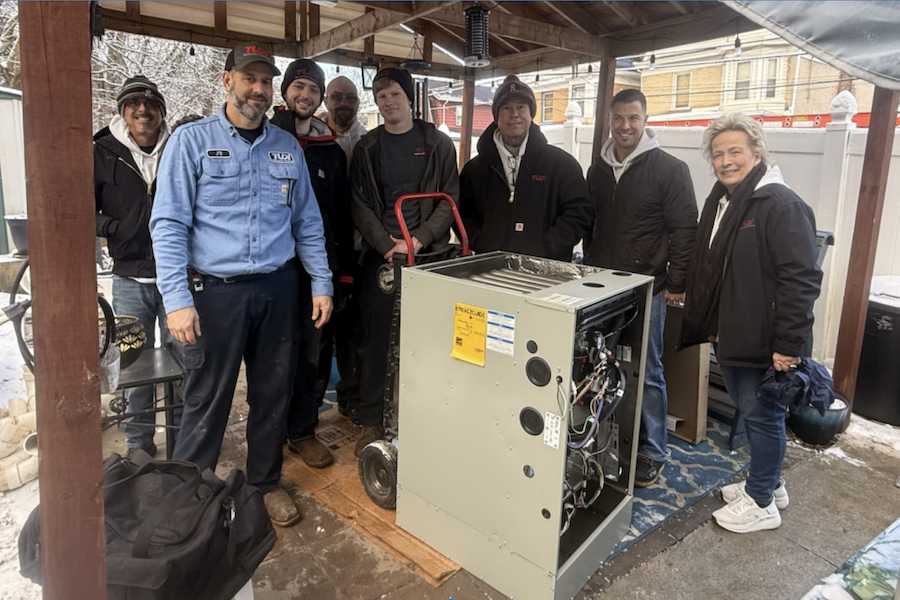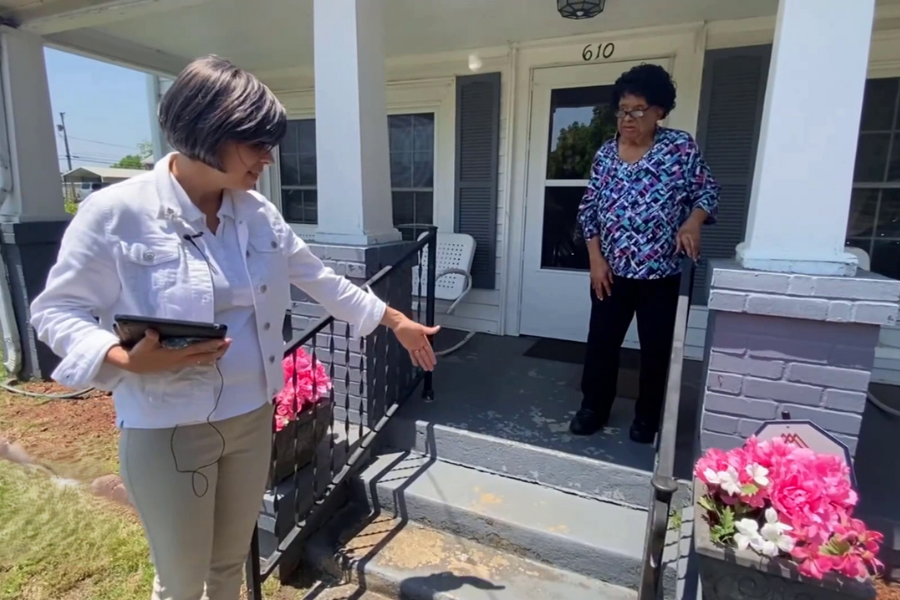Dec 13, 2024
How to Draw Young Professionals to the Energy Efficiency Industry
The energy-efficient home improvement industry boom is very timely for young professionals looking to specialize in a niche field.
By: Evelyn Long

Energy-efficient homes are growing in popularity as people become more aware of their carbon footprint and its impact on climate change. Sustainable homes play a big part in improving the environment, but ensuring the home improvement industry has an adequate skilled workforce is also equally essential.
Why Are Energy-Efficient Home Renovations Important?
Houses and commercial buildings account for 40% of energy consumption in the United States. The average American spends 10%-20% of their $2,000 annual power bill on air leaks, drafts, and heating and cooling system repairs. In 2022, residential and commercial buildings comprised 31% of greenhouse gas emissions in the U.S., with buildings using 75% of electricity generated in the country.
Energy-efficient houses solve this conundrum and benefit occupants and the environment. Prioritizing efficiency helps improve the home’s sustainability and reduce its carbon footprint and power bills. A residence should be sustainable throughout its life cycle, including during construction and renovations. Here’s why energy-efficient home retrofitting is vital:
- Saves energy, resources, and financial costs: Energy-efficient renovations can help reduce energy bills. These projects include fitting the home with alternative power sources, which workers will also use for their processes. This significantly improves energy efficiency on the site. In addition, many of these projects are eco-conscious and use recycled materials for renovation, reducing costs.
- Reduces carbon footprint: Energy-efficient projects produce less carbon than conventional ones due to their eco-conscious efforts.
- Impacts the home’s value: A house with green initiatives throughout its life span may sell for a better rate. Energy-efficient efforts could be the deciding factor for future homebuyers.
Benefits of Working in This Industry for Young Professionals
The energy-efficient home improvement industry boom is very timely for young professionals looking to specialize in a niche field. The sector offers many benefits for its workers:
- Availability of jobs: The industry is developing but generating demand, so jobs are increasing. Job security is also high since the interest in energy-efficient homes is growing. U.S. households claimed $8.4 billion in tax breaks in 2023 to improve efficiency.
- Specialized skills: The industry offers various niche subfields, which allow professionals to improve and diversify their skill sets. Many positions, such as sustainability management or energy adviser, did not exist decades ago, and the sector will continue to create more specialties.
- High wage: Green home improvement projects typically cost more than those without a sustainability focus. Therefore, the pay is also relatively higher.
- Demand for professionals: The industry is constantly growing, increasing the need for professionals. Last year, for every five U.S. energy sector jobs, two were for efficiency.
What do Young Energy-Efficient Home Renovation Professionals Do?
The energy-efficient renovation industry holds great potential for young professionals. These home improvement projects require various skill sets among the team to ensure efficiency and quality work. Among these are:
- Weatherization and insulation: There are many nuances in weatherproofing a home, including sealing cracks and selecting suitable insulation materials to ensure it’s ready for harsh weather conditions.
- Efficient fixtures: Energy-efficient windows and doors are the cornerstone of any home retrofitting project. They’re the house’s first defense against drafts and cold air and influence the usage of heating systems. Technological advances have introduced specific solutions for various fixtures in a home. For example, there are many choices a homeowner can make in frames, panels, coatings, and operating types to ensure their windows are efficient. This needs experts to consult, install, and maintain.
- Heating, cooling, and air purifying appliances: Energy-efficient heating and cooling appliances consume less energy to maintain comfortable temperatures. In addition, air purifying systems improve indoor air quality, reducing chemical pollutants in the air and thus decreasing health issues among occupants.
- Renewable energy alternatives: Some homeowners request switching their house’s electric source to a renewable alternative, such as thermal or solar, to improve the building’s performance. This would require professionals to do research, installation, and maintenance.
How to Attract Young Professionals
Many strategies can be implemented to attract the young workforce into the energy-efficient home construction and renovation industry.
Introduce Internship and Apprenticeship Programs
Internship and apprenticeship programs can help these professionals build skills, expand knowledge, gain valuable connections, and create an extensive portfolio of work.
Create programs that best suit the business’s nature and can fill the skill gap. By doing this, employers can ascertain the newcomers’ talent and learning growth and identify their strengths and skills before hiring them as full-time staff with the relevant wage. This also reduces the resources used for hiring and onboarding.
Provide Competitive Compensation
Any job is attractive when it is presented with a fair wage. Beyond the pay, employers also must provide a package that includes good work-life balance and opportunities to progress in the field.
Ensuring the job package is comprehensive, equitable and matches the skills needed is vital to enticing potential staff. This could attract highly talented people and motivate them to perform, thus improving employee retention.
Increase Training and Development
The industry is developing rapidly, with technology and innovation spurring growth. Employers must ensure their staff have the right skills and certification to be adept at their jobs. Consistent training and development in relevant areas ensure the workforce is abreast of the latest trends and technology.
Young Professionals Are the Future of the Energy-Efficient Home Improvement Sector
The young labor force is the stepping stone for transgenerational energy-efficient industry growth. Attracting them to the sector and providing them with the resources they need to excel is essential.






